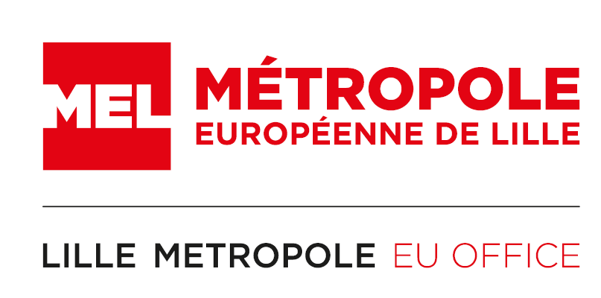
Lille Metropole's participatory budget: local advantage for the ecological and civic transition
In 2024-2025, Lille Metropole is launching the second edition of its participatory budget, with a clear and ambitious objective: to make biodiversity an issue of civic mobilization. With a budget of 1.2 million euros—around 1 euro per inhabitant—this scheme puts citizens at the heart of local public policy by involving them in the design of projects of general interest, while consolidating the ecological transition of the territories.
This themed edition, with biodiversity as its main objective, is founded on four pillars:
Encouraging citizen initiative
Financing projects led by residents
Strengthening local democratic dialogue, and
Creating links between sporting ambition and nature conservation.
An inclusive and collaborative approach, rooted in local realities
From May 5 to June 29, each citizen had the possibility to submit a project on Lille Metropole's participation platform, targeting public land of between 1,000 and 3,000 m². An online tool is available to help define the surface area, upload documents (photos, attachments), and formulate proposals. Submission was open to all, either individually or as part of a collective, and in unlimited numbers.

However, unlike traditional models, no public vote is organized. Instead, a citizens' commission—composed solely of residents, including representatives from participatory bodies within Lille Metropole (such as the HCMC, the Development Council, or the users’ committee for municipal facilities), as well as adult, youth, and child volunteers—reviews and selects the proposals. This format prevents territorial bias, where residents might only vote for projects concerning their own municipality, and ensures broader metropolitan coherence. Unlike the first edition, where a commission of elected officials selected the winning projects, this second edition relies entirely on citizen deliberation.
The role of project initiators does not end with submission. Although they are not guaranteed to follow the implementation in detail, they may be contacted later in the process, particularly for technical clarifications or during co-design phases. Whenever possible, they are reintegrated into the project timeline, promoting a true culture of shared governance.
Bridging local and metropolitan dynamics
A crucial aspect of this participatory budget is its integration with existing local initiatives. Around 20 municipalities within the metropole already have their own participatory budgets. The metropolitan initiative complements them –at the request of the municipalities–, by focusing only on projects falling under Lille Metropole’s competencies. If a project is eligible both at the local and metropolitan level, it must be directed to the relevant jurisdiction. Municipalities are supported by Lille Metropole in setting up their own frameworks: legal guidance, digital tools, and engineering expertise are made available to assist them.
This dynamic also aims to address disparities in citizen engagement across Lille Metropole’s 95 municipalities. From a broader point of view that does not concern municipalities, a dedicated consultation kit, particularly tailored to youth from the age of 8, has been developed in order to animate workshops and help local actors raise awareness. This educational component strengthens the involvement of younger generations in ecological governance.
A local initiative aligned with European Union priorities
Beyond its local scope, this initiative resonates with the European Union’s central priorities, like democracy, citizenship and participation, youth involvement.
Environmentally, it echoes the goals of the EU’s Biodiversity Strategy 2030, aiming to restore ecosystems and reinforce nature in urban areas.
Lille Metropole’s approach is one of only a few of its kind in France, and serves as a demonstration that ecological and democratic transformation can begin in neighbourhoods and unfold across Europe. This model could be shared and scaled up within larger European cooperation networks.

